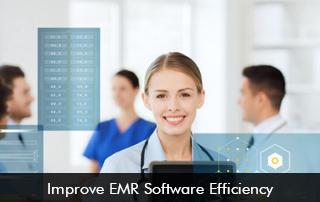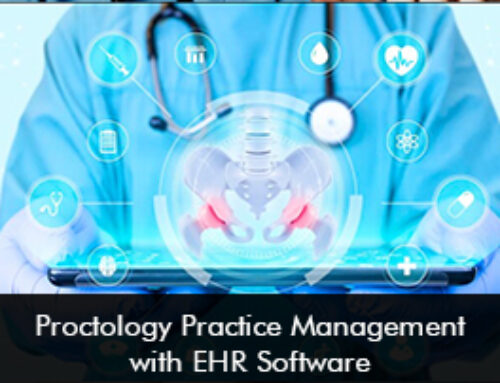Healthcare organizations have quickly implemented Electronic Medical Records (EMR) Software to boost productivity levels and streamline daily workflows. The robust technology of EHR Software offers practice management tools, patient engagement, and billing features to empower providers to focus on patient care. According to the Annals of Family Medicine primary care physicians have expressed that using EMR Systems can add to burnout and lower efficiency output. In this case, it is important to optimize your electronic medical records software.
Understanding EHR Software Optimization
Optimizing Electronic Medical Records software entails a set of strategic steps targeted at improving its performance, usability, and efficacy. An optimized EMR System can improve user satisfaction scores and ensure that providers can finish off daily tasks quickly. Optimized software makes the system efficient and an asset for clinicians to simplify tasks and offer high-quality patient care.
Key EMR Software Optimization Strategies to Boost Software Efficiency
User Interface and UX Design
Users must select an EHR Software that provides a simple and clean layout. If the layout or the interface is complex then user navigation will be tedious and providers will spend more time on the system rather than focusing on patient care. Furthermore, the electronic medical records software show allows users a great extent of personalization and customization so their preferences can be met.
Performance Optimization
Performance optimization helps to enhance the software’s speed and responsiveness. This includes reducing code complexity, improving database queries, and guaranteeing efficient data storage and retrieval operations. Load balancing allows the EMR Software to spread workloads evenly across servers, avoiding bottlenecks and providing continuous performance even during peak demand. Also, performance optimization entails ongoing monitoring and maintenance to discover and rectify possible problems before they affect consumers. The goal is to provide healthcare workers with a streamlined, rapid, and dependable software system that supports clinical processes and improves patient care while avoiding unnecessary delays or interruptions.
Importance of Training and Support for EHR Software Efficiency
The effectiveness of Electronic Health Records (EHR) Software depends on training and support since they guarantee that medical professionals can make full use of the features and functionalities of the system. Thorough training from the EMR Software vendor lowers errors and speeds up data entry by assisting users in becoming adept at using the program.
Continuous assistance minimizes downtime and preserves workflow continuity by quickly resolving any technical problems or user concerns. Moreover, a user base that receives enough training and assistance is more likely to embrace best practices, make the most of the software’s features, and offer insightful criticism for future advancements. Thus, total system efficiency is improved. Providers are more satisfied with the EMR Software and are in a better position to make the most out of their systems.







